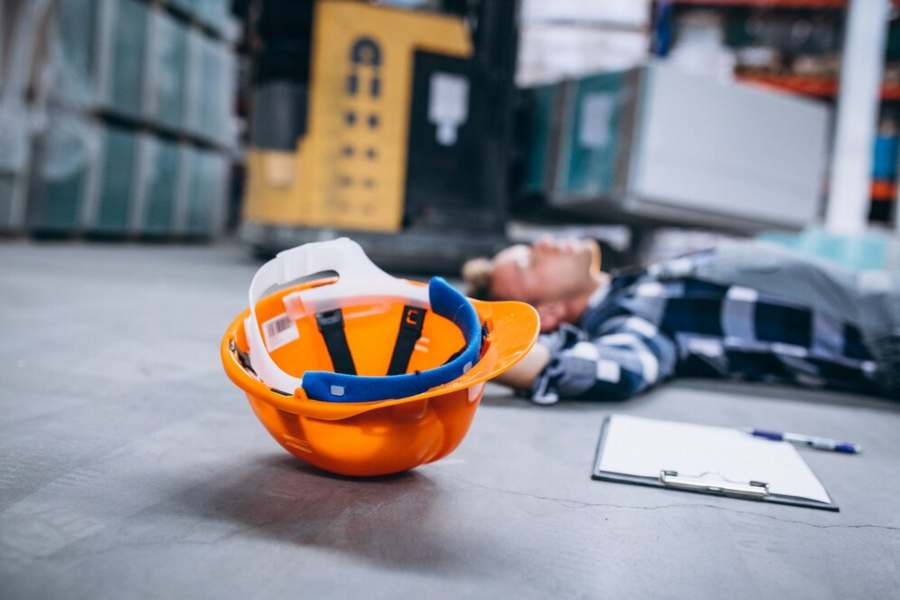Workplace injuries can happen to anyone, from office workers to construction crews in St. Louis. Workers’ compensation typically covers a wide range of injuries, including accidents, repetitive motion injuries, and some occupational illnesses suffered while on the job. Knowing what is covered makes it easier for workers to get the help they need if an accident occurs.
Some common examples include slips and falls, back and neck injuries, carpal tunnel syndrome, and injuries from lifting or moving materials. In more serious situations, workers may suffer from traumatic brain injuries, hearing loss, or long-term mobility issues. Because the claims process can be overwhelming, especially when dealing with pain or recovery, many people choose to work with professionals like a workman’s compensation lawyer in St. Louis or in their area for clear guidance and dependable support. Having the right help can make it easier to focus on healing while protecting your benefits.
Key Takeaways
Workers’ compensation covers most job-related injuries.
Coverage includes physical, repetitive, and some occupational health problems.
Legal help is available for St. Louis employees seeking benefits.
Overview of Workers’ Compensation Coverage in St. Louis
Workers’ compensation in St. Louis gives injured workers financial protection and help if they get hurt or sick at work. Both Missouri and Illinois have their own laws about who qualifies, what benefits are available, and how the claims process works.
Eligibility for Workplace Injury Claims
To qualify for workers’ compensation in St. Louis, a person must be an employee who is injured or gets sick because of their job. This includes sudden accidents, like falls, or illnesses that build up over time, such as repetitive stress injuries or breathing problems from workplace chemicals. It also includes occupational diseases and, in some cases, mental health issues from work.
Most Missouri and Illinois businesses must have workers’ compensation insurance. Independent contractors and some part-time or temp workers may not be covered. Coverage starts on the first day of employment in most cases. Injuries must be reported quickly, usually within 30 days in Missouri.
Types of Benefits Provided
Workers’ compensation pays for several main types of benefits to support injured workers. It covers all reasonable and necessary medical care related to the workplace injury, such as doctor visits, hospital stays, medications, and therapy. Temporary disability benefits partially cover lost wages if a worker cannot return to their job for a period of time.
Permanent disability payments may apply if the worker cannot recover fully. If someone dies because of a job injury, benefits go to their dependents to help with lost income and funeral costs. Most claims also include compensation for travel expenses for medical appointments.
Differences Between Missouri and Illinois Workers’ Compensation Laws
While Missouri and Illinois both require workers’ compensation coverage for most employers, their laws are different in some key ways. Missouri usually lets employers pick the medical provider for the injury, but Illinois often lets workers choose their own doctor.
Deadlines for reporting injuries, the process for filing a claim, and the formulas for wage and disability benefits can also be different. For example, Illinois may allow a broader range of injuries, including some mental health claims that Missouri does not cover. Waiting periods before wage replacement benefits start also vary by state.
Knowing these differences is important for workers in St. Louis, especially because the city sits on the state border and people often work on both sides.
Common Types of Workplace Injuries Covered by Workers’ Compensation
Workers’ compensation in St. Louis supports employees who are hurt or made ill because of their jobs. Employees may get help with medical bills, lost wages, and disability benefits, depending on the injury or illness.
Traumatic Injuries and Accidents
Traumatic injuries happen suddenly, usually from accidents like falls, machinery incidents, or being struck by objects. These types are common in factories, warehouses, and construction sites where dangerous machinery is used. Common traumatic injuries include fractures, cuts, amputations, burns, and head injuries. Severe injuries can lead to permanent partial disability or even permanent total disability if a worker cannot return to work.
If a workplace accident results in death, death benefits may be paid to the family. Workers’ compensation typically covers medical expenses for these injuries and provides wage replacement, such as temporary total disability payments if the worker needs time off to recover.
Repetitive Stress and Occupational Injuries
Some work injuries build up over time instead of occurring all at once. Repetitive stress injuries happen when a worker repeats a motion many times. A well-known example is carpal tunnel syndrome, often affecting office workers or people who use their hands for the same tasks every day.
These conditions are common in jobs that involve typing, assembling products, or using vibrating tools. Symptoms may include pain, numbness, and loss of function, making tasks difficult. Workers’ compensation may pay for medical treatment, physical therapy, and even pay lost wages if time off is needed.
Illnesses and Occupational Diseases
Workers can develop illnesses from exposure to harmful substances or unsafe environments at work. Common occupational diseases include lung diseases (from inhaling dust, asbestos, or chemicals), skin conditions from chemical contact, and hearing loss from loud environments. Some jobs may put workers at risk for infectious diseases if they handle biological materials.
Employers must provide compensation if a worker becomes sick because of a clear connection to their job. Workers’ compensation covers medical expenses for treatment and may provide wage loss benefits if the illness stops the person from working for a period.
Conclusion
Workers’ compensation in St. Louis covers a wide range of injuries. These include sudden accidents, repetitive stress injuries, occupational diseases, and even aggravated pre-existing conditions.
Employees are protected if their injuries occur while doing job duties for their employer. Help is available through both medical benefits and wage replacement.


